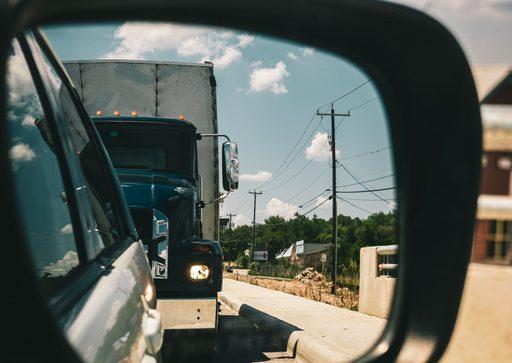

(844) - 444-4444

A car’s following you so closely you seem to be towing it.
What is it this time?
Tailgating is a regular and unfortunate occurrence on the road. While some motorists tailgate because they’re worried they’ll be late to a meeting or won’t make it to the grocery before closing time, others tailgate out of needless aggression. If you’ve ever moved into the left lane to pass someone only to suddenly see another car barreling up behind you like an emergency vehicle, expecting you to get out of the way fast, you know all too well the message some tailgaters try to send other motorists:
I own this road.
Tailgating is dangerous and illegal. Tailgaters give themselves little if any time to react to other vehicles, thereby risking a swerving crash or rear-end collision.
Tailgating is a risky and dangerous behavior often linked to speeding or aggressive driving.
New York law prohibits following too closely . Under New York law, drivers must follow other motorists at a “reasonable and prudent” distance. This distance might depend on an array of circumstances, including the traffic, weather, and time of day. When a motorist rear-ends another motorist on New York roads, it is natural to wonder who is at fault, or otherwise liable. According to New York courts, “[a] rear-end collision with a stopped or stopping vehicle creates a prima facie case of negligence with respect to the operator of the moving vehicle, and imposes a duty on the operator of the moving vehicle to come forward with an adequate, [nonnegligent] explanation for the accident.”
An experienced attorney can help establish liability in a rear-end collision by securing evidence that the rear-ending motorist lacked a non-negligent explanation for the collision. This evidence can include surveillance footage, witness statements, and, when necessary, expert reconstruction testimony. For example, if the driver claims that his or her foot slipped from a brake, or that he or she looked away from the road for a bit, that will likely not qualify as a non-negligent explanation and the driver will be negligent and potentially liable. Where, however, the driver claims that the preceding motorist stopped very abruptly, it may be a closer call, depending on all of the circumstances. Every case is unique. An experienced attorney can review those unique circumstances and help establish liability.
If you were injured because of a tailgating driver on New York roads it may be a good idea to consider:
There are many ways a lawyer can help those injured in a tailgating accident.
An attorney can gather evidence to strengthen your claim by proving that tailgating caused your crash. Such an investigation might entail:
The sooner you contact a New York personal injury lawyer, the easier it will be to build a strong case. Some types of evidence disappear or are lost with time. Skid marks fade. Store owners toss old security footage. Steps must be taken to help ensure that important evidence is preserved.
An attorney can pursue maximum compensation for your injuries. If you were injured by a tailgating driver, you may be eligible to pursue a settlement, which can help to compensate you for accident-related damages such as pain and suffering.





